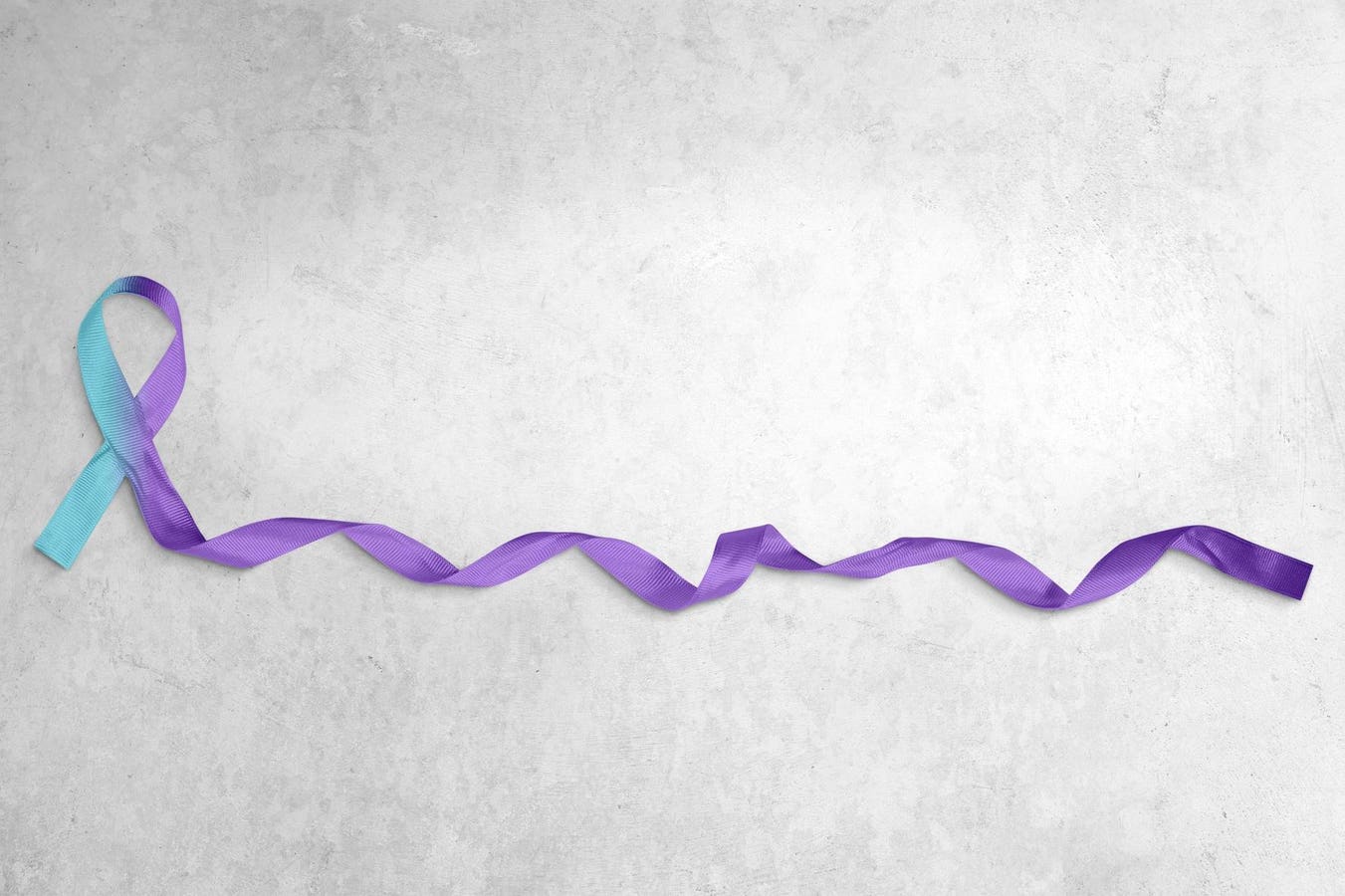Suicide Prevention Awareness Ribbon Concept
getty
A report last month by the Substance Abuse and Mental Health Service Administration (SAMHSA) indicated that the federal government recognizes September as Suicide Prevention Awareness Month. Suicide prevention is a priority for higher education because suicide is a leading cause of death among young and emerging adults. As described by a 2023 report on BestColleges.com, a distinguishing factor is that the suicide rates among college students are lower than young adults who are not enrolled in college. This indicates the presence of protective factors on campuses, such as distressed students having access to student counseling centers and being surrounded by a community of potential by-standers.
Another protective factor is that members of groups who are at higher risk for suicide often live or travel to campus. Few, if any, health care systems have the same access to as many military veterans, survivors of trauma, individuals with diverse identities, ethnic and racial minorities, those who struggle with addictions, etc., as higher education. A 2024 report on Forbes.com highlighted how experts are calling for community partners and government officials to better utilize the access and infrastructure of college mental health to reduce the mental health concerns of society in cost-effective ways, and this includes suicide prevention.
Confusion About DEI Bans And Suicide Prevention
There’s confusion in college mental health about how recent state laws, executive orders, and federal memos about diversity, equity, and inclusion initiatives relate to suicide prevention efforts. This confusion is fueled by a general misperception that DEI bans do not impact medical services because healthcare services are offered to every student. Though healthcare services are available to all students, many DBI bans include generic language that’s difficult to interpret. For example, Texas’ Senate Bill 17 prohibits institutions of higher education from conducting trainings, programs, or activities designed or implemented in reference to race, color, ethnicity, gender identity, or sexual orientation. As a result of such generic language, many counseling centers across the nation have stopped providing services such as therapy groups for young males struggling with pornography, or for females overcoming sexual assaults, out to fear that these services violate the law as written. Such clinical groups frequently serve students with thoughts of suicide, and eliminating these groups was not the stated intent of DEI bans.
Precedent That DEI Bans Prevent Mental Health Outreach
Targeted mental health promotion to high-risk groups is an important element of suicide prevention efforts. However, there’s precedent that DEI bans could prevent this type of outreach. As described in a 2025 report on Forbes.com, following the Oct. 7, 2023, attacks on Israel, several state legislatures passed resolutions calling for enhanced support for Jewish students on campuses. However, many counseling centers in states with a DEI ban didn’t promote/provide this enhanced support out of fear of violating the law as written. Thus, it’s expected that the same will be true about providing targeted services for students who are known to be in higher risk groups for suicide.
Confusion About Health-Care Exemptions In DEI Bans
As the report on Forbes.com indicated, several health associations are asking government officials to clarify that DEI bans do not impact clinical services provided by licensed healthcare providers on campus. Some states, including Alabama and Iowa, have already included healthcare exemptions in their DEI bans, and representatives in other states have voiced plans to argue for such exemptions.
Despite these efforts, the concept of medical exemptions in DEI bans is still unfamiliar to many and underreported by the mainstream media. For example, in 2025, the Office of the Attorney General released a memo meant to serve as guidance for recipients of federal founding regarding unlawful discrimination. This memo defined preferential treatment as providing opportunities that disadvantages other qualified persons. Many experts believe that because there’s no meritocracy in counseling, and one group seeking therapy in no way disadvantages another group, that mental health services do not meet this federal definition. Furthermore, the DOJ memo exempted same sex separations when the difference implicates privacy, safety or athletic opportunity. Since the standard of confidentiality is higher than privacy, some experts are interpreting this as giving counseling centers permission to have gender specific therapy groups. However, to date, there’s no official interpretation of the DOJ memo.
In summary, college mental health has unique protective factors and opportunities to prevent suicide in emerging adults, and the government has expressed support for these preventive efforts. Though mental health and suicide prevention is not a stated focus of DEI bans in higher education, the unforeseen consequence of how these bans are worded has been the elimination of clinical services and outreach that could hamper initiatives, such as Suicide Prevention Awareness Month.









